Scuba diving is water activity that involves going underwater with the aid of a device known as self-contained underwater breathing apparatus (SCUBA), in which a person breathes through. SCUBA is acronym for Self-Contained Underwater Breathing Apparatus.
In scuba diving, divers wear a back-mounted tank of air or other breathing gas connected to a regulator that delivers it to their mouths. This permits the diver to inhale while submerged and explore the depths below. Scuba diving has recreational value and also used for scientific, military and commercial purposes. It offers an unrivaled opportunity to watch marine life, explore underwater topography, and experience subsea world unlike any other means can provide.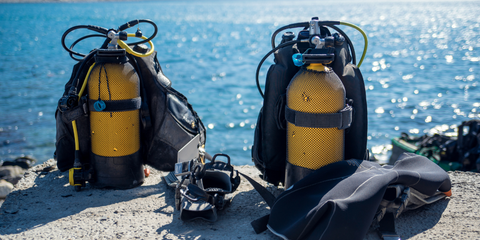
1. Diving Gear:
- Diving Mask: Covers the eyes and nose, allowing the diver to see clearly underwater.
- Fins: Enhance mobility and help the diver move efficiently through the water.
- Wetsuit or Drysuit: Provides thermal insulation to regulate body temperature in different water temperatures.
- Buoyancy Control Device (BCD): Allows the diver to control buoyancy by inflating or deflating the BCD with air.
- Regulator: Connects to the tank and delivers air to the diver on demand.
- Dive Computer: Monitors depth, time, and nitrogen levels, helping to prevent decompression sickness.
- Tank: Contains compressed air or a mixture of gases for breathing underwater.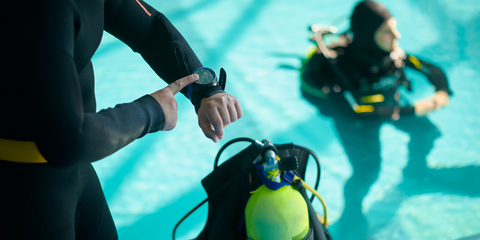
2. Training and Certification:
Before engaging in scuba diving, individuals typically undergo training from certified dive organizations such as PADI (Professional Association of Diving Instructors), or SSI (Scuba Schools International).
Basic certification courses cover topics like equipment use, safety procedures, dive planning, and underwater communication.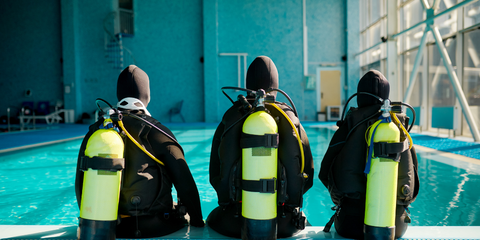
3. Dive Planning:
Divers plan their dives, considering factors such as depth, underwater currents, water temperature, and dive time.
Dive tables or dive computers help divers avoid exceeding safe time and depth limits to prevent decompression sickness.
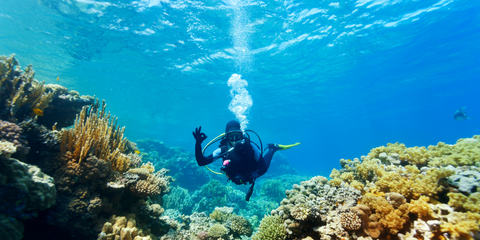
4. Underwater Communication:
Divers use hand signals, dive lights, and other communication devices to communicate with each other underwater.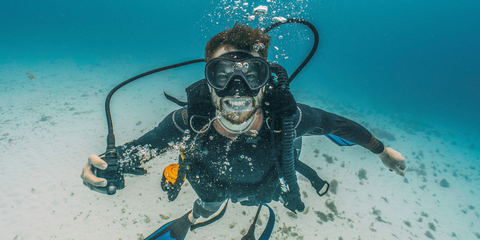
5. Safety Measures:
Safety is a top priority in scuba diving. Divers learn emergency procedures, such as sharing air with a buddy and ascending safely in case of an emergency.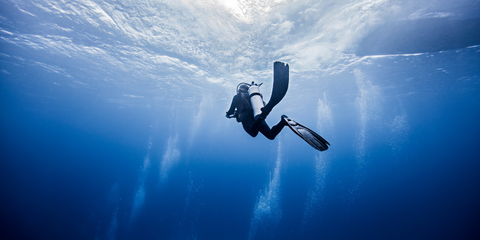
6. Types of Diving:
Recreational Diving: The most common form, which includes exploring coral reefs, shipwrecks, and marine life.
Technical Diving: Involves advanced techniques, equipment, and training for deep dives, cave diving, and wreck penetration.
Professional Diving: Some individuals become professional divers for careers in underwater photography, marine biology, or as dive instructors.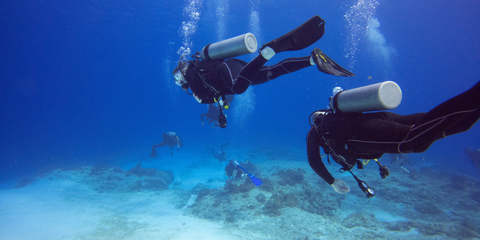
7. Environmental Awareness:
Divers are educated about the importance of preserving underwater ecosystems and minimizing their impact on marine life.
Scuba diving offers a chance to explore the diverse and captivating underwater world, providing a sense of weightlessness and tranquility below the water's surface. Divers must follow safety protocols for a safe and enjoyable experience.
Book Your Dive
FlyingFish Scuba School
flyingfish.in
9209247825
GTDC Calangute Residency, Goa 403516, India

